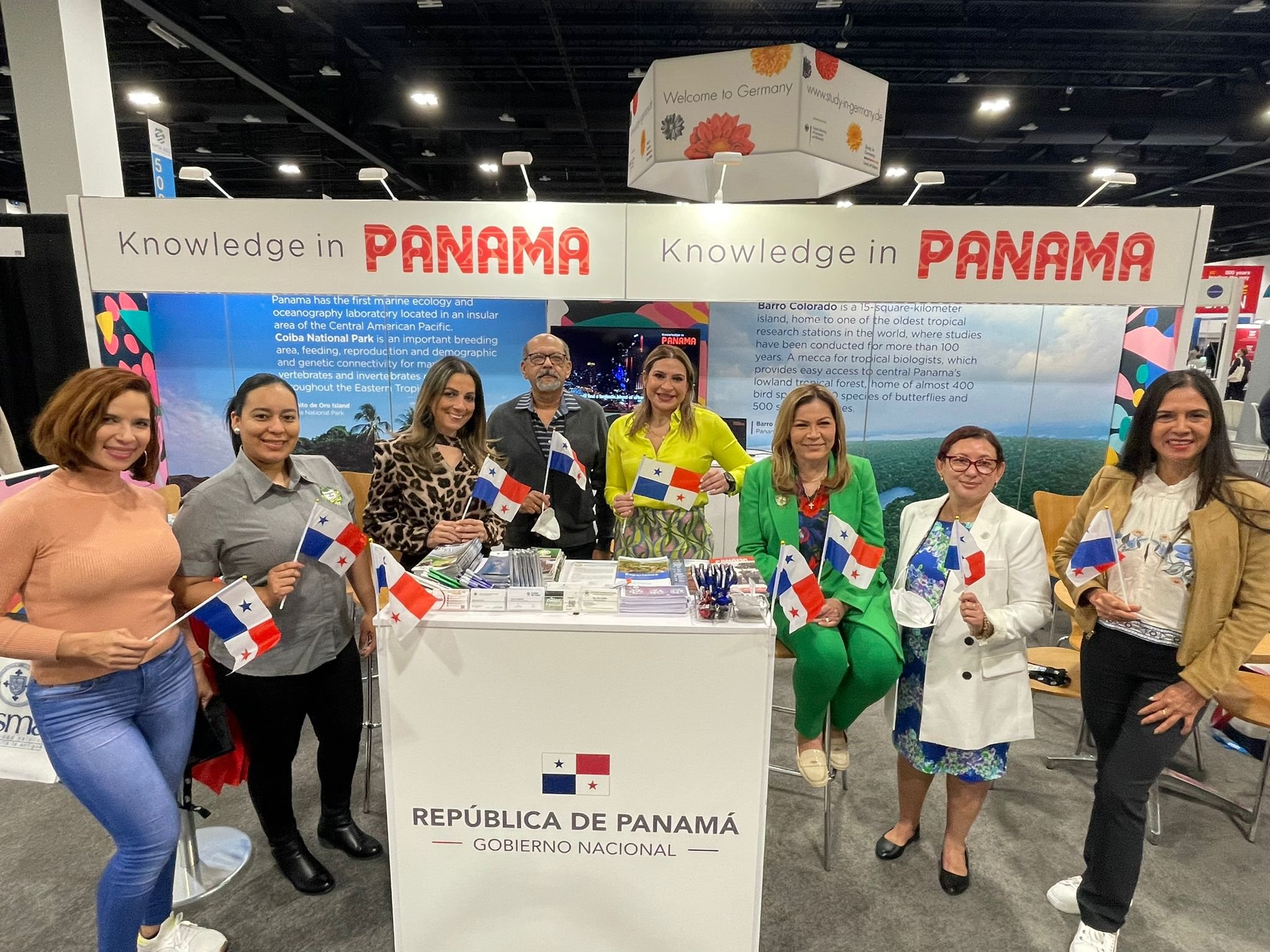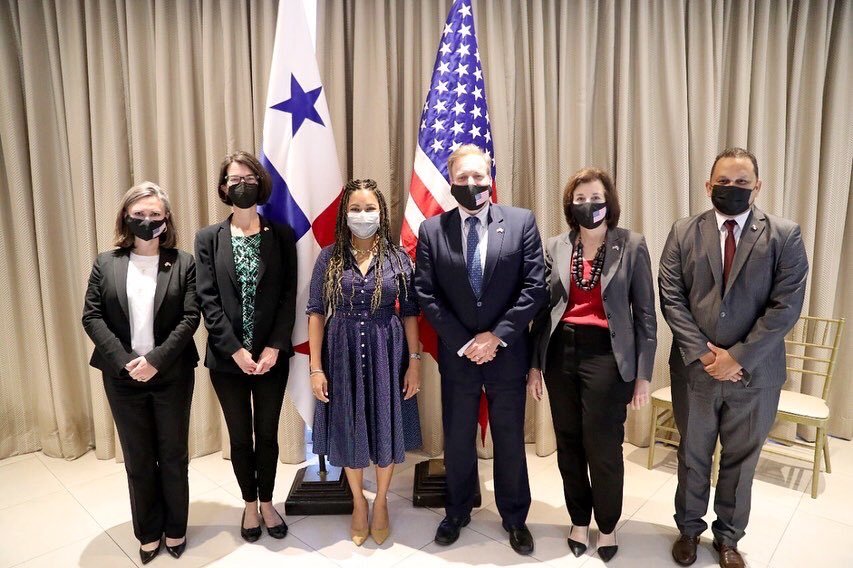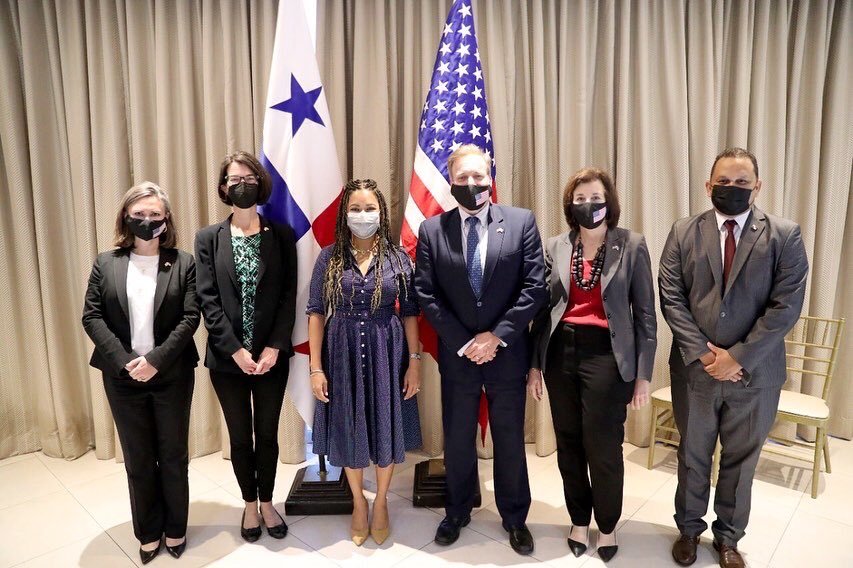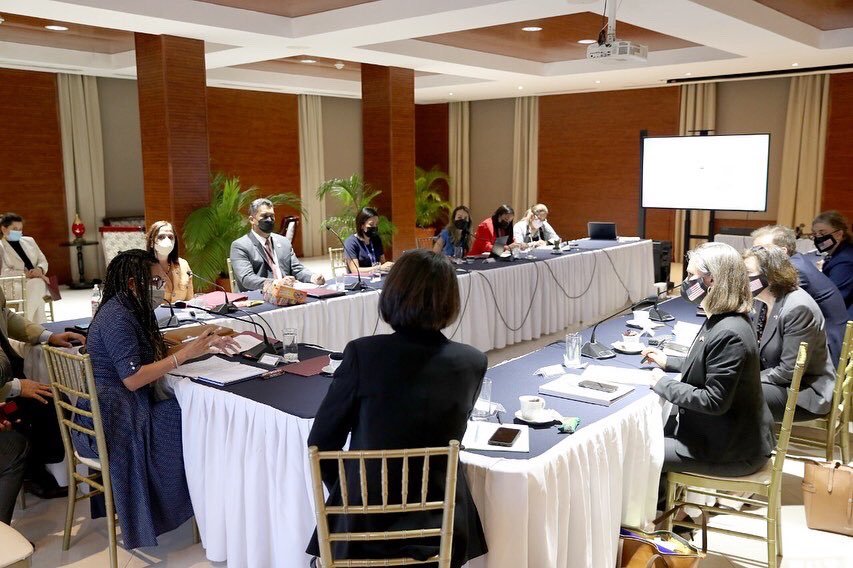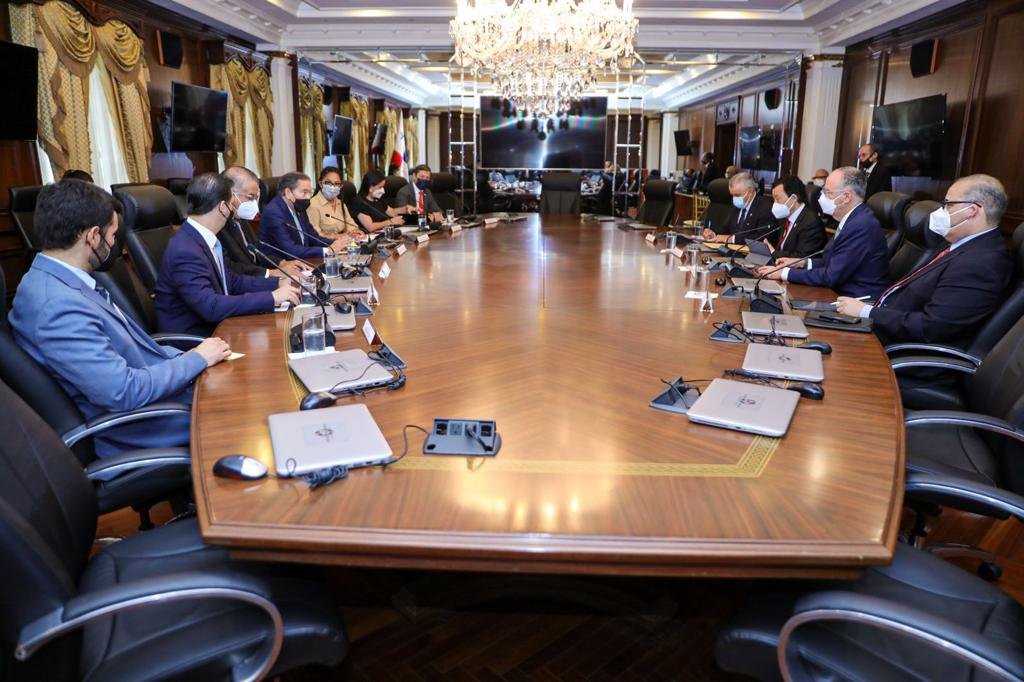The foreign ministers, security ministers, and immigration authorities from South, Central, and North America gathered in Panama to support the country's leadership in the articulation of regional strategies.
After the international meeting, a work table is created to deal with migratory flows at a continental level.
Panama City, Panama (April 20, 2022). With the consolidation of a new regional framework to attend to migratory flows at the continental level, the Ministerial Meeting on Migration convened by Panama concluded, in which foreign ministers, security ministers, and directors of Migration from countries of the American continent participated.
“We have strategically focused on the problem in a coordinated effort by the State, acting immediately and facing the challenge decisively because we understand that we cannot remain in the discourse in the face of a problem of this magnitude, said the president of Panama, Laurentino Cortizo Cohen, in a message offered to the participants of the Meeting.
The president reaffirmed the commitment of the Republic of Panama to work in collaboration with friendly countries as strategic allies in the search for joint solutions with transversal policies and concrete actions that promote regular, orderly, and safe migrations respecting human rights. In addition, the Panamanian president thanked those present "for their participation, willingness and determination to work on regional integration to address the irregular migratory phenomenon in the context of international migration."
The participating countries agreed to establish a framework led by the foreign ministers to coordinate the standardization of continental policies, as well as the promotion of cooperation between States, intergovernmental organizations and development banks, and international aid funds to attend in a way orderly, safe, and humane high migratory flows and the factors that encourage them.
"This framework offers a clear roadmap, milestones and concrete goals and the policies that we must implement in a way that ensures the well-being of the people who transit through our countries and the stability of the communities that receive them," said Foreign Minister Erika Mouynes. about the deal.
Minister Mouynes explained that, after the first meeting called by Panama in August last year, which was followed up technically and diplomatically, this meeting has achieved "unprecedented progress and the institutional and multilateral framework required by the region to guarantee a sustainable and humanitarian response to the high flows of transcontinental migration”.
In addition, she identifies the need for financing that States affected by migration need from their origin, transit and destination.
“Addressing the phenomenon of irregular emigration is a priority on our agendas and we have committed to doing it together. That is the great triumph of this meeting”, concluded the Panamanian Foreign Minister.
The foreign and security ministers meeting in Panama agreed on the need to combat human trafficking and the cartels that promote misinformation and put at risk the physical integrity of migrants who are victims of their cross-border trafficking networks.
"We are determined to ensure the application of international humanitarian law and to dismantle, as we have done so far, the organized crime networks that take advantage of the hopes of thousands of men, women and children in search of better opportunities," they pointed out in the statements. conclusions. (?)
At the meeting, which also brought together the International Organization for Migration, the Red Cross and international funding agencies, three lines of work were defined:
• Stabilization of migrant-receiving communities and their recovery after the pandemic
• Attention to the root causes, including infrastructure development and basic needs, in the countries of origin as a mechanism to discourage irregular migratory flows.
• Co-responsibility in the attention to the phenomenon between the countries of origin, transit and destination.
"With today's results, the path is paved to generate new opportunities and guide the region towards development that gradually transforms the conditions that force these massive displacements," the minister concluded at the meeting.
As the next step in the Panamanian diplomatic strategy, Foreign Minister Mouynes announced the next meeting, also in Panama, of the ministers of Central America and the Caribbean, to collate an ambitious regional proposal that addresses the economic and political impacts of the current geopolitical context, which will also affect migratory movements.
This call, set for May 3, is also attended by Josep Borrell, High Representative of the European Union for Foreign Affairs and Security Policy and Vice President of the European Commission, a political bloc with which collaboration relations and bi-regional alliances are strengthened.
During the meeting, the immigration figures registered by the Darien Gap, between the border of Colombia and Panama, were shared, with peaks of up to 2,800 people a day in 2021 and a grand total of 130,000 migrants of 35 different nationalities during that time. same year.
Panama is the only country on the American route that offers shelter, food and medical attention to irregular migrants and also the only one that applies biometric controls with which those persecuted by justice worldwide are identified.
In an average year, 8,000 irregular migrants cross Panama. In 2021, the figure rose to more than 130 thousand and so far in 2022, the number exceeds 15 thousand.

